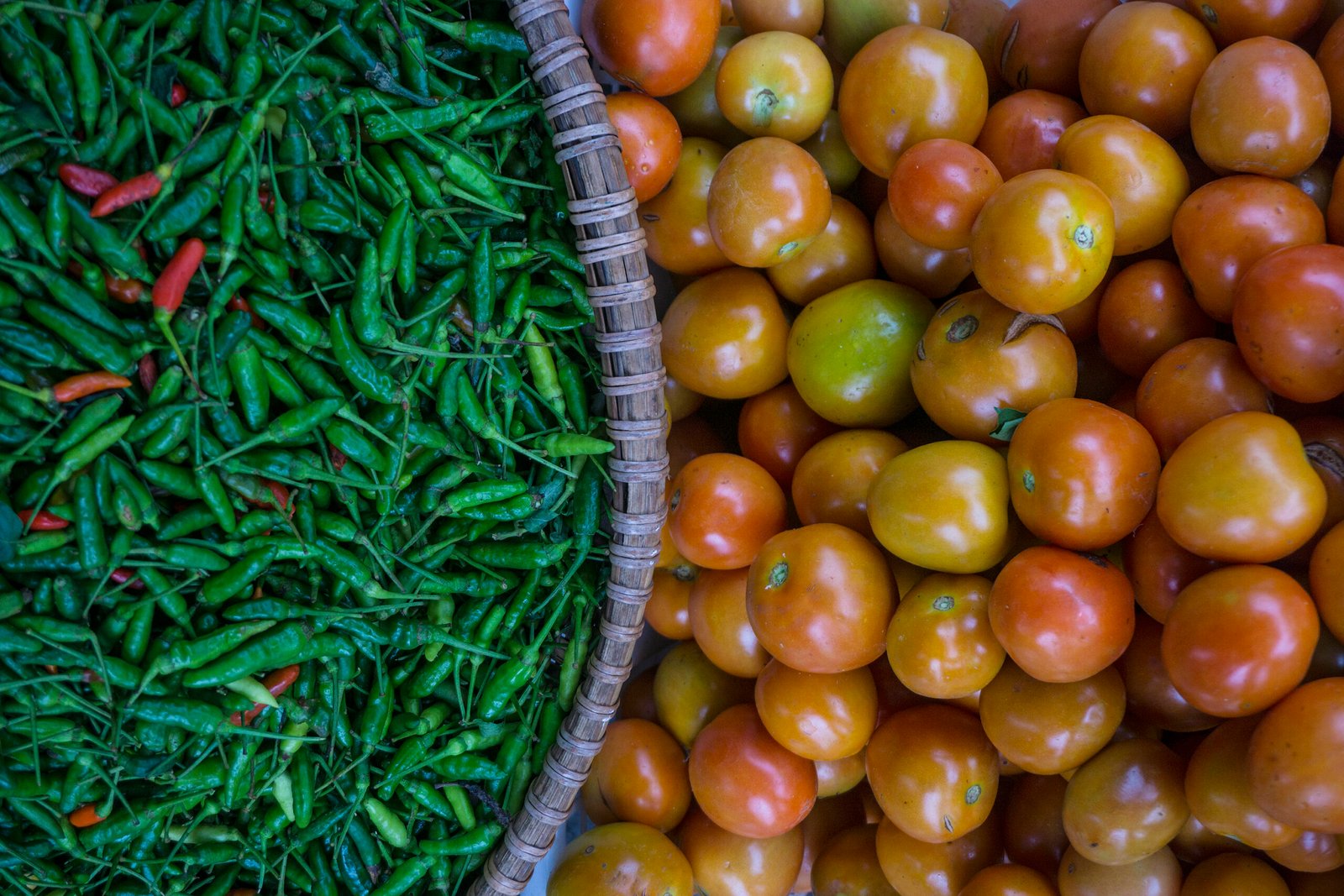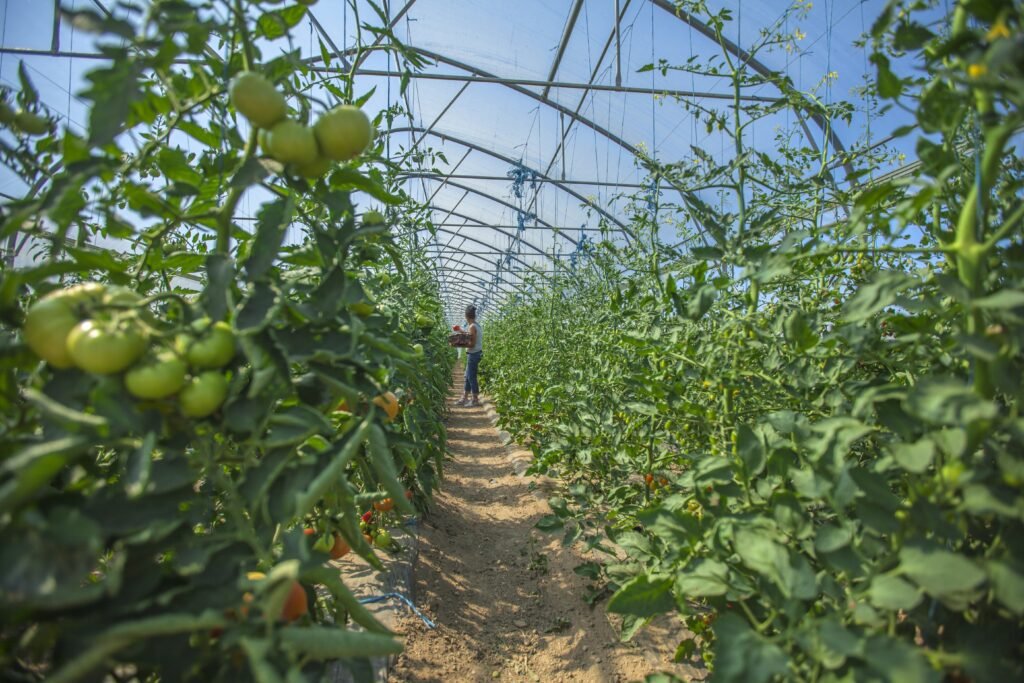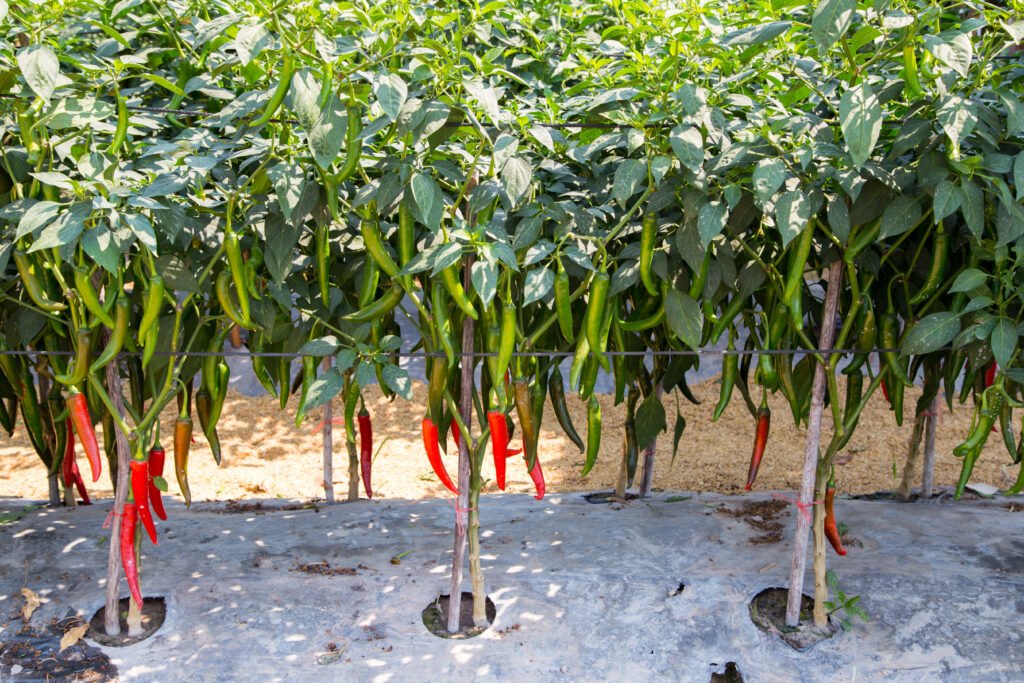Latest News
Biocontrol Agents Revolutionize Tomato and Chilli Farming with 100% Natural Pest Resistance

Biocontrol agents are redefining pest management in Indian agriculture, especially in chilli and tomato farming. By using beneficial insects, fungi, and bacteria, farmers are witnessing zero-pest damage without chemical pesticides. This shift not only enhances yield but also boosts soil health and food safety. As sustainable farming gains ground, biocontrol-based agriculture is proving to be both environmentally sound and economically viable, offering a real alternative to chemical-intensive methods in India’s key horticultural crops.
🔬 What Are Agents of Biocontrol?
Biocontrol agents are living things that are employed to naturally control agricultural pests. Examples of these species include helpful bacteria, parasitic wasps, entomopathogenic fungi, and predatory insects. Without endangering the crop, environment, or beneficial creatures, these pesticides target certain pests.

- Trichogramma species, for instance, parasitise pest eggs.
- Bacillus thuringiensis (Bt): Targets larval caterpillars
- The Metarhizium anisopliae is a root grub killer.
- Products made from neem interfere with the feeding and reproduction of insects.

Taking care of the vegetables in a big greenhouse.
Why Tomato and Chilli Crops?
High-value horticultural crops like tomatoes and chillies are cultivated all throughout India, however they are also quite vulnerable to pests like:
- Borers of fruit
- Whiteflies
- Thrips
- Aphids
- Mites on spiders
These pests, which were formerly managed with conventional pesticides, have become resistant, leading farmers to look for safer and more environmentally friendly alternatives, such as biocontrol agents.
✅ Benefits of Biocontrol in Chilli and Tomato Farming
| Benefit | Description |
|---|---|
| Zero Chemical Residue | Crops are safe for consumption and export-ready |
| Eco-Friendly | No soil or water contamination |
| Targeted Pest Control | Only harmful pests are affected, beneficial insects thrive |
| Cost-Effective Over Time | Reduced need for repeated pesticide sprays |
| Improved Soil Microbiology | Supports organic farming and long-term land health |
Better Microbiology of the Soil promotes long-term land health and organic farming 📈 Success in the Real World in India
Farmers in Karnataka, Maharashtra, Tamil Nadu, Andhra Pradesh, and other states have reported:
- Fruit borer infestations may be reduced by up to 95%.
- 30–40% increase in output in farms under biocontrol
- increased export potential as a result of produce with minimal residual
- Access to high-end markets and certifications (eco-cert, organic)
Through training and incentives, government programs like MIDH (Mission for Integrated Development of Horticulture) and PKVY (Paramparagat Krishi Vikas Yojana) are encouraging the use of biocontrol.
⚠️ Challenges and Considerations
| Challenge | Mitigation Strategy |
|---|---|
| Need for farmer training | Regular field workshops and agri-extension support |
| Slower action vs. chemicals | Use in preventive IPM strategies rather than curative only |
| Climate-sensitive organisms | Store and apply under proper temperature and humidity guidelines |
| Limited awareness | Government and NGOs stepping up awareness drives |

green and red pepper on the branch in field ready to harvest
📘 FAQs: Biocontrol Agents in the Production of Tomatoes and Chilli
Q1: Can humans safely consume biocontrol agents?
Indeed. They make crops safer for export and home consumption by leaving no chemical residues on output.
Q2: How are tomato and chilli crops treated with biocontrol agents?
They may be made available as:
- Sprays (for fungus and germs)
- For parasitoids such as Trichogramma, egg cards or sachets
- Soil drenches (for bacteria that colonise roots)
Q3: Can chemical pesticides be used in conjunction with biocontrol?
Yes, but preferably in conjunction with an IPM (Integrated Pest Management) system. Compatibility and timing are essential to prevent damaging beneficial agents.
Q4: How much does it cost to implement biocontrol on a farm with one acre?
Depending on the agent and application technique, the initial cost might range from ₹800 to ₹1,500 per acre; however, government programs sometimes provide subsidies.
Q5: Can biocontrol totally eradicate pests?
Biocontrol provides long-term, preventative control. Unlike synthetic sprays, it may not “kill all” bugs right once, but it does encourage a natural equilibrium in the insect population.
Q6: Where are biocontrol agents available to farmers?
They may be accessed via:
- State agricultural departments
- Krishna Vigyan Kendras, or KVKs
- Institutes of ICAR
- Private biocontrol laboratories with certification
Concluding remarks
More than just a fad, the use of biocontrol chemicals in tomato and chilli cultivation is revolutionising the way food is grown in India. Sustainable farming using biological pest management is the way of the future due to increased market demand for chemical-free food, government assistance, and expanding awareness. This zero-pest, zero-residue strategy has advantages for farmers, consumers, and ecosystems.





















